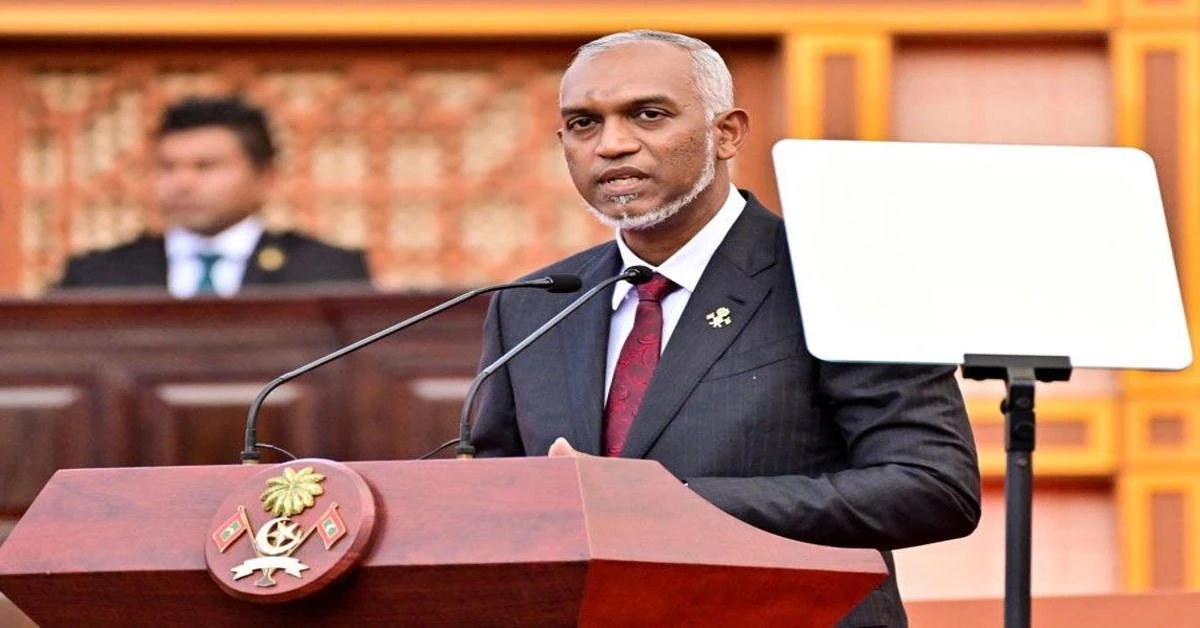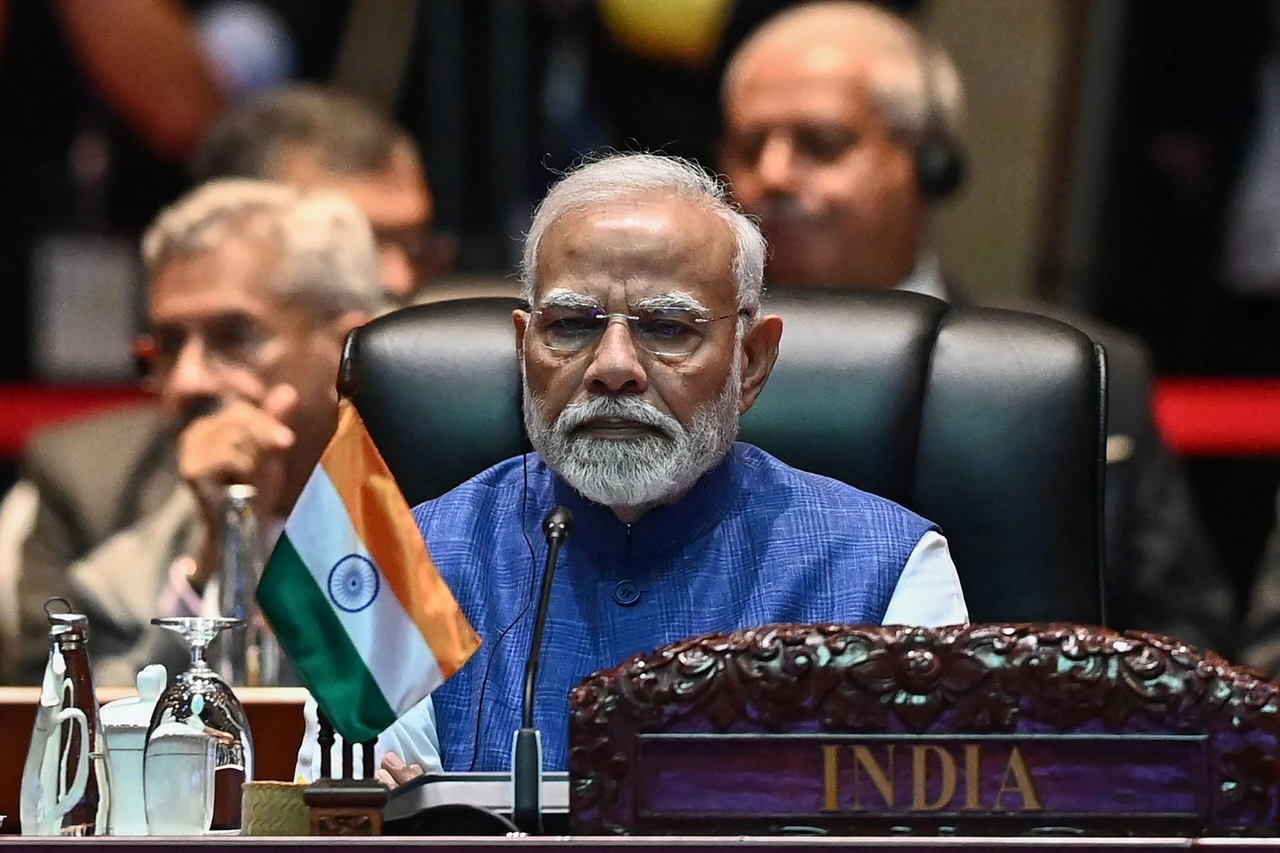President Muizzu’s party wins major victory in Maldives

Maldives President Mohamed Muizzu’s National People’s Congress party wins 71 of 93 parliamentary seats, signaling a decisive victory in Sunday’s elections
Maldives President Mohamed Muizzu’s party has won a decisive victory in the country’s parliamentary elections, local media reports. Preliminary results from Sunday’s vote show that the Muizzu-led National People’s Congress won 71 of the 93 seats in parliament.
The elections attracted a lot of attention from regional powers such as India and China, which are vying for influence in the archipelago nation strategically located in the Indian Ocean.
President Muizzu’s party won last year’s presidential elections, fueling rivalry between India and China. Muizzu, who has adopted a pro-China stance, led the expulsion of Indian troops stationed on one of the Maldivian islets, further escalating tensions between the two powers.
India-China rivalry
Despite initial expectations that Muizzu would face a tough electoral contest, Sunday’s election went more smoothly than expected. Internal squabbles among some of his allies and the entry of new parties into the political arena were expected to pose formidable obstacles. But Muizzu’s party emerged victorious with relative ease.
Muizzu’s party’s landslide victory in the tourism-dependent archipelago in southwestern India underscores the ongoing geopolitical rivalry between India and China in the region. Muizzu, who won the presidency last year on a platform advocating reduced ties with India, further cemented his stance by paying a state visit to China in January. During the visit, he signed several agreements with China covering economy, trade and infrastructure.
A notable aspect of Muizzu’s policy shift was his request for India to withdraw its 88 military personnel stationed in the Maldives. These troops were involved in maritime patrols, radar operations and medical evacuations to the mainland. The Indian Ministry of External Affairs confirmed that the troops had been withdrawn and would be replaced by an Indian technical team.
Drastic decline in tourism
Keeping a delicate balance between neighboring giants has long been a central theme of Maldivian politics. Ongoing regional tensions have had tangible impacts on the Maldivian tourism sector, exacerbated by recent developments such as Prime Minister Narendra Modi’s promotion of India’s Lakshadweep archipelago through social media posts in January, perceived by some as a slight against the Maldives.
These diplomatic dynamics are clearly reflected in the tourism statistics provided by the Maldives Ministry of Tourism. Traditionally, India has been the primary source of tourists for the Maldives. However, the first quarter of this year saw a significant decline in the number of Indian visitors, down 38% to 34,847 compared to the same period last year. In contrast, the influx of tourists from China increased dramatically, reaching 67,399 visitors, a staggering 288% increase over the same time period.
This drastic shift in tourist arrivals underscores the tangible impact of geopolitical tensions on the Maldives’ vital tourism industry. As the Maldives maintains diplomatic relations with neighboring countries, notably India and China, the repercussions go beyond politics, affecting key sectors of the economy and highlighting the complex interplay between geopolitics and tourism in the region.
Soruce: Newsroom



